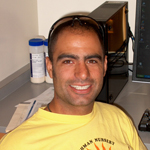UPDATE: The September 27 Webinar slides and video, and answers to frequently asked questions have been posted.
We have released the latest funding opportunity announcement (FOA) for the Maximizing Investigators’ Research Award (MIRA) pilot program. This FOA, while similar to last year’s announcement, is intended only for early stage investigators. This eligibility change and other modifications were made to further test the MIRA mechanism under carefully controlled conditions. MIRA supports investigators’ overall program of research within the NIGMS mission through a single, unified grant rather than individual project grants. Applications are due by November 4, 2016. The earliest start date is July 2017.
We’ll hold a webinar to discuss this FOA (link no longer available) and answer questions about the program on Tuesday, September 27, from 3-4 p.m. EDT. Participants will be able to submit questions using the chat feature. We plan to post the archived webinar and slides on the MIRA webpage after the event.
We receive many questions about eligibility. NIH defines an early stage investigator as one who is within 10 years of completing his/her terminal research degree (e.g., Ph.D.) or is within 10 years of completing medical residency (or the equivalent). The investigator must also have not yet received a substantial independent NIH research award (e.g., R01, DP1 or DP2, SC1). Extension of the period of ESI eligibility can be requested for certain specified reasons.
NIGMS plans to issue additional FOAs for MIRA later this year with broadened eligibility for awards to be issued in Fiscal Year 2018.
For additional information, check the MIRA webpage, email me or call me at 301-594-0828.
Please help us get the word out by sharing this information with your colleagues and anyone else who might be interested in applying.


 I’m very pleased to announce a new annual lecture to highlight the achievements of some of NIGMS’ early career grantees.
I’m very pleased to announce a new annual lecture to highlight the achievements of some of NIGMS’ early career grantees.